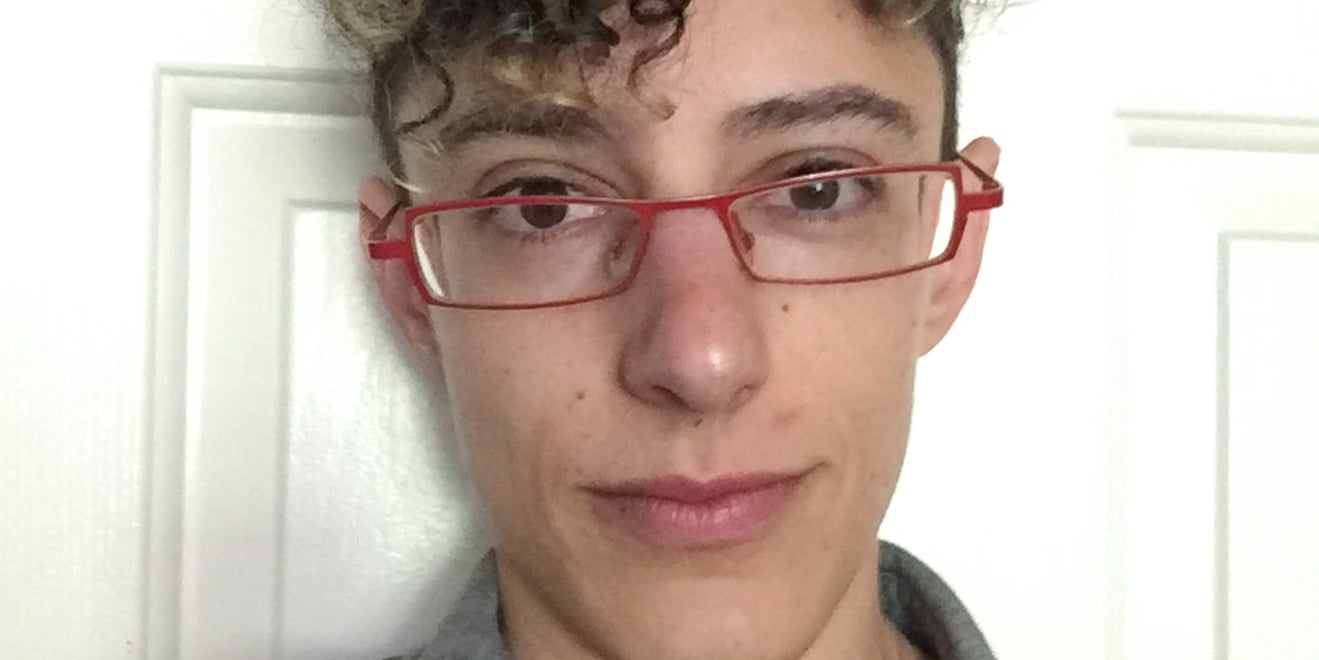Ray Briggs is a professor of philosophy at Stanford, and has published two books of poetry: “Free Logic” and “Common Sexual Fantasies, Ruined,” in addition to the zine “Modern American Gods” (in collaboration with artist Anna Zusman). “Free Logic” won the 2012 Thomas Shapcott Poetry Prize for emerging poets in Queensland and was shortlisted for a 2014 Queensland Literary Award.

In conversation with The Daily, Briggs discussed the relationship between poetry and philosophy, the role of politics in arts and rats that masquerade as small dogs.
The Stanford Daily (TSD): Your first book of poetry is titled “Free Logic.” Is there a connection between the logic of poetry and the logic of philosophy?
Ray Briggs (RB): I think so. I like to write a lot of poems about philosophy. The title of the book is because one of the poems is called “Free Logic,” which is a kind of logic where you can introduce dummy or real names for things that don’t really exist. So I wrote about a poem about reasoning about things that don’t exist and lists of things that don’t exist.
I think that philosophical puzzles are a really great source of poetic material and I think that poetry helps me to write better philosophy articles because it’s really easy to write in a style that nobody wants to read if you don’t think about what you’re doing.
TSD: How does that influence manifest itself in your writing? Are there specific things you pay attention to while writing philosophy articles?
RB: I pay attention to using concrete examples, the cadence of my sentences and the structure of the thing I’m writing. I think a lot of the skills are transferable back and forth between poetry and philosophy.
TSD: Are there any philosophers that you think are especially poetic, or poets that you think are especially philosophical?
RB: What do we want to classify Audre Lorde as? Maybe both, because she wrote both poetry and essays (which don’t always get taught in the philosophy department, but sometimes do). She’s just a really good writer. I remember some poor guy gave a paper on Audre Lorde and he wrote as reasonably well as any of us do, but had to include block quotes from her which is unfortunate for anybody because she writes so much better than the average academic. So I think that she’s sort of good at both the poetic skills and the philosophical skills.
I also like this poet — I’m going to butcher her name — Szymborska? She has a wonderful poem about preferences that I read a lot when I was writing about preferences. It’s just a list of things that she prefers and is sort of a self-portrait.
TSD: What work were you doing on preferences?
RB: I’m interested in a bunch of things. At the time, I was working on this project about what the relationship is between getting what you prefer and being well-off — so preference-satisfaction theories of well being. I think [the theories] get something fundamentally right but have some obvious problems that need to be overcome.
TSD: What are the obvious problems?
RB: One obvious problem is that you can have a preference intuitively because you have a mistaken belief. So there’s this example by Bernard Williams of somebody who wants a glass of gin, and mistakes a glass of petrol for a glass of gin. And forms […] the desire to drink what’s in that particular glass [although] it looks like that wouldn’t be good for them, and they only have the desire because they made a mistake.
TSD: Switching gears a bit, do you have any poetic projects currently in the works?
RB: I actually just finished a collaboration with my friend Anna Zusman, called “Modern American Gods.” We visualized concepts that Americans are fixated on collectively, as though they were gods in some kind of polytheistic pantheon. So she draws icons of them — I think she doesn’t really want them to be icons, I think pictures is what she says — and I write prayers to them.
TSD: What are examples of these gods?
RB: Lets see, so we’ve got a god of cultural appropriation and a goddess of political correctness. I insisted on the god of firearms. We’ve also got a god of terrorism. So they’re not necessarily things that Americans think are good — they’re all meant to be ambivalent rather than all good or all bad. Just things that are important. So we’ve got a god of freedom and a god of comfort and a god of family values and a goddess of fame. There are 26 in all.
TSD: This project sounds a little bit political. What do you think the roles of politics is in poetry?
RB: Anna and I talked a lot about the role of art and politics and it’s hard to do political poetry, I think, because you don’t want to be didactic and you can really spoil the aesthetics of it. And actually having a collaborator was really good for preventing me from getting didactic, because we disagreed about all kinds of things and so it was a conversation, and one of the things we wanted to model was how do you disagree and have a conversation about it that captures both sides of the disagreement.
I actually really like poetry as a place to talk about politics because I’ve found that … I can reach [people I can’t talk to otherwise] if we both do art, even if we disagree. And it opens up a realm of possibility and empathy that are really hard to get if you’re just yelling at each other across the table.
TSD: Do you know what’s next?
RB: So I know what’s next with Anna. This is much less political. We were walking around one day and looking at small dogs and sort of spun out this story about rats. There’s sort of the urban legend of the small dog that turns out to be a rat, and we thought what would it look like from the rat’s perspective? And we talked about a family of poor rats, whose only hope was to send their child out to dog finishing school to be adopted as a rich person’s dog. We’re going to probably make an illustrated zine about that of some kind.
TSD: What poem are you most proud of?
RB: I’m still really fond of this thing I published in the Canadian journal “Arc” called “Questioning Your Masculinity.” As is so often the case, I wrote it because I found something in the world that upset me and wanted to process it. So somebody else on a poetry forum … had written what I thought was a really sad poem about being threatened by his wife’s ability to parallel park. And I thought, what kind of human being does this? And I wanted to write something about that but I didn’t want to just sound angry, because that bores people. And I was sort of sad, I was sort of angry — I wanted the world to deliver up something better than that — and so I wrote a series of questions about what masculinity is.
And [the questions] were making it much more concrete than I think it actually is, so I asked about its color, and where you keep it, and its texture and can you teach it to sing. And I’m proud of that because I managed to turn this very closed set of feeling that I was experiencing into a very open list of questions, and there’s not a set of right answers presupposed to any of the questions. The reader kind of gets to answer them for themself.
Contact Michal Leibowitz at michalgl ‘at’ stanford.edu.
